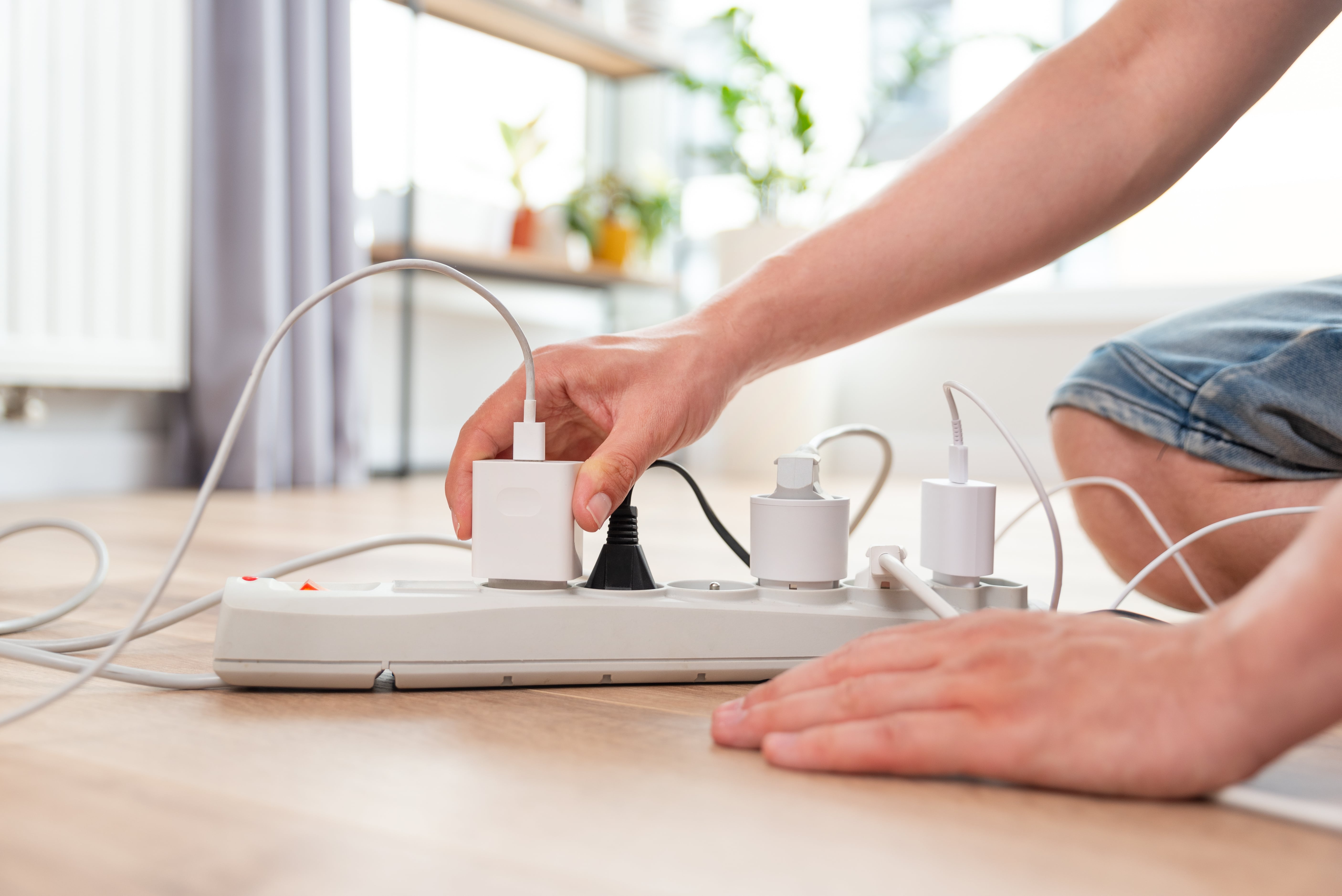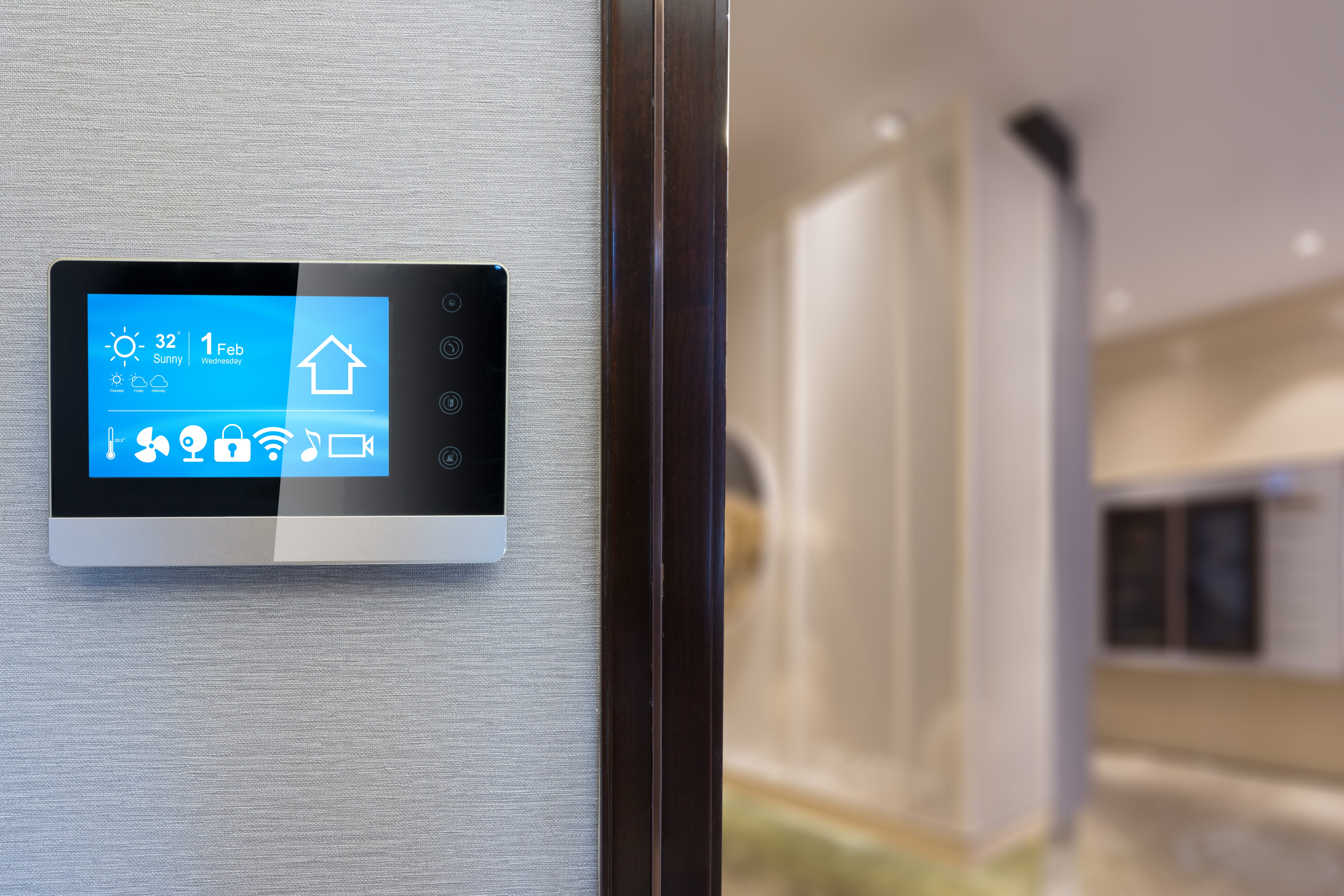You likely know that following energy-saving practices can help lower your monthly electricity bills and benefit the environment. Still, you may think that improving your home energy efficiency requires some major upgrades, like deciding to power your home with solar energy.
However, the truth is that changing a few of your daily habits can greatly impact your finances as well as the environment. Each room of your home has multiple opportunities for energy savings, from turning off lights and electronics to adjusting settings on electricity-hungry appliances and finding ways to save energy while working remote.
Gexa Energy’s guide to saving energy in your home breaks down opportunities for reduced electricity use in every room of the house. Read on to find ways to make your home more energy efficient.
{{CTA-thermostat-right-plan}}
Kitchen
The kitchen, a location of major appliance energy usage, including the refrigerator, oven, and dishwasher, can be a major energy drain, accounting for as much as 13% of home electricity use, according to the U.S. Department of Energy (DOE). Outside of the heating and cooling system, the kitchen is the room in your home that uses the most electricity.
Fortunately, there are ways to conserve energy in the kitchen, starting with the oven. Because using the stove and oven adds heat to your home, try to avoid using these appliances as much as possible. When you do, use the right cookware that heats easily, such as glass and ceramic dishes in the oven, to save time and reduce electricity use.
With any major appliances, it’s a good idea to purchase ENERGY STAR®-certified products when it’s time to replace an older model.
Here are a few more tips for reducing energy use in your kitchen:
- Only run the dishwasher when it’s full
- Switch to low-flow faucets
- Unplug small appliances, like blenders and toasters, when not in use
- Clean the condenser coils of your refrigerator
- Skip the drying cycle on your dishwasher and allow dishes to air-dry instead
Bathrooms
When it comes to bathrooms in energy-efficient homes, the concern isn’t appliances; instead, energy-saving in the bathroom consists of finding ways to use less water. That means taking shorter, cooler showers and turning off the faucet when shaving or brushing your teeth.
For bigger changes to your bathroom, consider replacing your showerhead, faucet, and toilet with low-flow options to conserve water.
You can also limit your energy use and save on your electricity bill by making sure to unplug devices like curling irons, flat irons, and hair dryers when you’re not using them.
Bedrooms
The biggest energy user in your bedroom is your HVAC system, so look for ways to keep the room comfortable without turning on the air conditioning or heating. High-quality window treatments like thick drapes and curtains can help regulate the temperature, and so can closing your closet door while you sleep.
If you tend to run hot when you sleep, invest in a mattress and bedding designed to stay cool so you don’t resort to turning on the AC.
Here are a few more changes you can make to help create an energy efficient bedroom:
- Rearrange furniture to avoid blocking heating and cooling vents.
- Check seals around doors and windows for drafts and re-seal if necessary.
- Switch out incandescent light bulbs for more efficient LEDs or CFLs.
- Paint your bedroom walls a lighter color, which makes the room appear brighter and reduces the need for artificial lights.
Laundry Room
The laundry room is one of the house's largest energy users, combining the bathroom's water usage with the kitchen's large appliances. A washer can use excessive water if you’re not careful, and the dryer emits heat into your home, forcing your cooling system to work overtime.
Here are a few tips for reducing water and energy use in your laundry room and improving home energy efficiency:
- Only put full loads in the washer and dryer.
- Wash clothes in cold water whenever possible.
- Make sure to clean out the lint trap in the dryer every time you use the machine.
- If the weather allows, hang your clothes outside to dry.
- Switch to ENERGY STAR®-certified appliances when yours need to be replaced.
Garage
You may not think of your garage as a room in your home that can be energy efficient. After all, there are generally no large appliances in the garage and no water use like in the laundry room and bathroom. But most energy-efficient homes consider the entire property, including the garage.
There are several ways to keep your garage from adding to your electricity plan bills, even if the structure is not attached to your home.
- Check seals between the walls and garage floor, as well as around windows and the door frame, for gaps and cracks.
- Install a more energy-efficient garage door.
- If you have an extra refrigerator or freezer in the garage, keep it at least half-full and double-check if you truly need the additional cold storage.
Living Room or Family Room
Home electronics contribute to a large portion of household energy use because these devices constantly use power, even when they’re in hibernate or standby mode. One of the best ways to improve home energy efficiency in the living room is to plug all electronic devices into a single power strip so that you can easily turn everything off with the flip of a switch.
You can also purchase smart power strips that allow you to set timers, ensuring that your devices aren’t using power when you don’t need them. Take advantage of any home automation options that can help reduce your energy consumption.
And if you’re thinking about replacing an old TV, newer models tend to be more energy-efficient even if they’re larger. Talk about a win-win!
Learn More about Gexa Energy and how they use renewable energy from environmentally friendly sources.






































